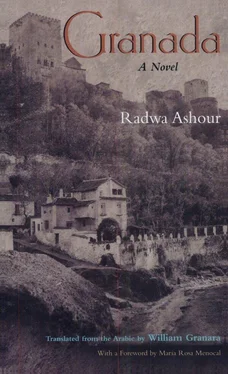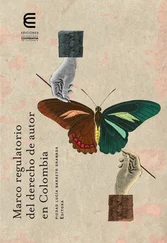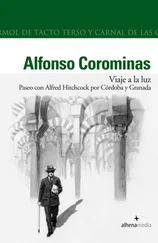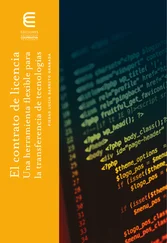Radwa Ashour - Granada
Здесь есть возможность читать онлайн «Radwa Ashour - Granada» весь текст электронной книги совершенно бесплатно (целиком полную версию без сокращений). В некоторых случаях можно слушать аудио, скачать через торрент в формате fb2 и присутствует краткое содержание. Год выпуска: 2003, ISBN: 2003, Издательство: Syracuse University Press, Жанр: Современная проза, Историческая проза, на английском языке. Описание произведения, (предисловие) а так же отзывы посетителей доступны на портале библиотеки ЛибКат.
- Название:Granada
- Автор:
- Издательство:Syracuse University Press
- Жанр:
- Год:2003
- ISBN:9780815607656
- Рейтинг книги:5 / 5. Голосов: 1
-
Избранное:Добавить в избранное
- Отзывы:
-
Ваша оценка:
- 100
- 1
- 2
- 3
- 4
- 5
Granada: краткое содержание, описание и аннотация
Предлагаем к чтению аннотацию, описание, краткое содержание или предисловие (зависит от того, что написал сам автор книги «Granada»). Если вы не нашли необходимую информацию о книге — напишите в комментариях, мы постараемся отыскать её.
Granada — читать онлайн бесплатно полную книгу (весь текст) целиком
Ниже представлен текст книги, разбитый по страницам. Система сохранения места последней прочитанной страницы, позволяет с удобством читать онлайн бесплатно книгу «Granada», без необходимости каждый раз заново искать на чём Вы остановились. Поставьте закладку, и сможете в любой момент перейти на страницу, на которой закончили чтение.
Интервал:
Закладка:
“It’s not a new world,” Saleema cried out to her companions, “it s just a different world, and that’s all there is to it.”
The parade’s amazing attractions were not quite over. As the procession continued, the captives appeared, and whispers spread rapidly through the rows of spectators. “It’s the natives, there they are, the inhabitants of the new world!” They walked along slowly, hands tied behind their backs while the guards surrounded them on both sides. They had delicate features and slender, fragile bodies. The men, like the women, had long, flowing jet-black hair that came down to the shoulders. Yet underneath the Castilian clothing they were made to wear, their differentness was all too obvious, not only in their physical features and the look in their eyes, but also in the colored feathers that stuck out of the bands they wore around their heads. Although strange indeed, they were not at all repulsive to look at. On the contrary, they were attractive in their refined faces and their graceful physiques, or perhaps in something else about them. Many of the Spaniards were laughing. Saleema turned to Saad and asked, “What are they laughing about?”
“I don’t know.” The laughter also took Saad by surprise. At first it baffled him, and then it made him angry.
“Saad, do you see that girl?” Naeem asked.
“Which one?”
“The prisoner who’s wearing the white robe?” Naeem pointed to a young woman thin as a rail who had stumbled and fallen down, but when one of the guards rushed forward and tried to help her get up, she pushed him away with her shoulder and regained her balance, standing up by herself although her hands were chained, and continued to walk.
“I wonder what her name is?”
“How should I know?”
“If only I knew her name!”
The procession went forth immersed in a cacophony of rattling tambourines and beating drums, while the whistling of flutes mixed with the roar of discharging artillery and the boisterous guffaws of the masses. But the four youngsters were dumbfounded by the fact that all the cheer that was bursting in their hearts had mysteriously disappeared. They hadn’t noticed that it slipped away and was now replaced with a melancholy that seemed to overtake the entire parade. They watched in silence the cuffed hands behind the backs of the captives, the slow, deliberate pace, the bowed heads, and those sudden, furtive looks that stared them right in the eye whenever a captive looked at them and they at him.
“Why don’t we go home?” Saleema suggested.
“Let’s go. Where’s Naeem?”
They stood there for a while and waited for him to come back. But the longer they waited, the more anxious they became. Saad wanted to go and look for him but felt constrained by the promise he made to Abu Jaafar not to leave the children alone, not even for a blink of the eye. They waited some more and then Saad decided that they should go back.
“Let’s go back to Albaicin. Hopefully Naeem will have already gotten there before us.” Saad didn’t reveal to them, however, his intention to come back and look for his friend. On the way home, Hasan and Saleema kept assuring themselves that Naeem had gone back into town, and Saad was quick to agree with them that was most likely what had happened. But deep down he didn’t believe a word of it, and his heart grew heavy with worry.
Silently they walked through the mountain passes as the sun went down and the colors of the hills faded, giving way to the impending night. Saad was thinking about the procession of captives that had come and gone. He wondered whether they attacked them by land and sea the way they did to the people of Malaga. Did they starve them to the point of forcing them to eat their own horses? Or did they raze their homes and pounce on them before taking them away as prisoners?
At the beginning of the summer, the warm weather follows the copious rains that bring to the land the scent of fresh wet grass. The grown-ups say, “The Malaga Palace has fallen and the Castilians are coming.” The grown-ups say, “They arrived and pitched camp outside the walls of the city. They dug trenches and they built towers and wooden bridges. They set up Italian artillery posts. King Ferdinand arrived, and then Queen Isabella came from Cordova.” His father says that Hamid al-Thaghri, who led a heroic defense of the town of Ronda, was asked immediately after its fall to become leader of the garrison at the fortress of Gibralfaro, which overlooks Malaga. His father says that al-Thaghri came down from the fortress with his troops, removed the governor of Malaga who intended to surrender it, and set up a blockade around the city. That’s the only thing that the grown-ups talk about. They hear the words and sometimes they understand, and at other times they don’t. In either case, they repeat what they hear in playful imitation.
Racing through the neighborhoods, playing hide-and-go-seek behind the trees, and stealing sour grapes from the neighbors’ vineyards all came to an end with the onslaught of the new pastime: they give each other roles and then get into disputes and wage battles with one another. Everyone wants to be al-Thaghri or, at least, one of his soldiers, and then, in the end, settle for the part of King Ferdinand or one of his senior officers, or perhaps a knight. They have everything they need,for there is an abundance of things to choose from, either from home or in the streets. Someone sneaks out a clay vessel and uses it as Ferdinand’s crown by turning it upside down and placing it on top of the head; by becoming taller he turns into a king. Or the branches of the trees are made into ready-made swords, while small pebbles turn into gold dinars and stones become precious gems. An old garment is wrapped around one child’s head, thus becoming an awesome turban, transforming him into a prosperous and powerful merchant.
With the clay vessel towering above the others, King Ferdinand summons three of his knights and commands them to go to Malaga. “Tell them to surrender the city. “The knights bow before him, kiss his small hand, and turn around and head out to convey his message to the other side. “King Ferdinand orders you to surrender. “The turbaned heads draw close and huddle in consultation. The merchant speaks: “If we don’t surrender, he will destroy us.”
The others reply, “No surrender.”
It falls to Darwish, the leader of the town, to settle the matter: “We will surrender!”
Al-Thaghri appears mounted on his make-believe horse. He raises his sword to Darwish and strikes him. He falls to the ground and dies. The others run away. With his tree branch weapon drawn, al-Thaghri proclaims, “Tell the king that Sidi Zghal did not entrust us with the command of this fortress only to surrender it. We will defend our city!”
The king’s emissary replies, “But His Majesty has sent you this gift,” stretching out a handful of stones and pebbles. “He will give you all of this, plus a castle and even more money, if you surrender.”
Al-Thaghri returns the handful of gifts to the royal emissary and says confidently, “I want nothing from you.”
Whereupon war breaks out. They all take part in attacking with their wooden swords. The battlefield extends into the entire vineyard as they pair off in different directions, battling one another until they collapse in exhaustion.
These were the daily games in the first weeks of the siege before the provisions dwindled and people dropped dead of starvation, and their empty stomachs prevented them from running and playing. Even the sour grapes, which they delighted in stealing and whose sharp pungency they once savored, were now repugnant to them as their acidity tore away at their insides.
His father refuses to slaughter his horse. His mother sobs: “The children will starve to death.”
Читать дальшеИнтервал:
Закладка:
Похожие книги на «Granada»
Представляем Вашему вниманию похожие книги на «Granada» списком для выбора. Мы отобрали схожую по названию и смыслу литературу в надежде предоставить читателям больше вариантов отыскать новые, интересные, ещё непрочитанные произведения.
Обсуждение, отзывы о книге «Granada» и просто собственные мнения читателей. Оставьте ваши комментарии, напишите, что Вы думаете о произведении, его смысле или главных героях. Укажите что конкретно понравилось, а что нет, и почему Вы так считаете.












